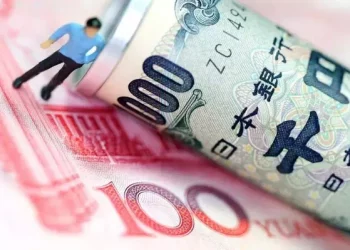Understanding currency exchange rates is essential for anyone involved in international trade, travel, or finance. For individuals and businesses dealing with currencies like the Euro (EUR) and the Swiss Franc (CHF), staying informed about the current exchange rate is crucial. In this article, we’ll delve into the current EUR to CHF exchange rate and explore factors influencing currency fluctuations.
The Current Exchange Rate
As of the latest data available, the exchange rate for EUR to CHF stands at 0.97. This means that if you were to exchange 100 Euros, you would receive 97 Swiss Francs in return. Exchange rates are dynamic and can fluctuate due to various economic, political, and market factors.
Factors Influencing Exchange Rates
Economic Indicators: Economic data such as GDP growth, employment rates, inflation, and interest rates play a significant role in determining exchange rates. Countries with strong economic fundamentals often have stronger currencies, leading to higher exchange rates.
Monetary Policy: Central banks, such as the European Central Bank (ECB) and the Swiss National Bank (SNB), influence exchange rates through monetary policy decisions. Actions like interest rate changes, quantitative easing, or currency interventions can impact the value of a currency.
Political Stability: Political stability or instability in a country can affect investor confidence and currency value. Currencies of politically stable countries are often viewed as safer investments, leading to higher exchange rates.
Market Sentiment: Investor sentiment and market speculation can cause short-term fluctuations in exchange rates. Factors such as geopolitical tensions, trade disputes, or unexpected events can influence market sentiment and lead to currency volatility.
Trade Balance: A country’s trade balance, which measures the difference between exports and imports, can impact its currency value. Countries with trade surpluses tend to have stronger currencies, while those with trade deficits may experience currency depreciation.
Global Events: Global events, such as natural disasters, pandemics, or geopolitical conflicts, can have far-reaching effects on exchange rates. These events can disrupt global trade, affect investor confidence, and lead to currency fluctuations.
Speculation: Currency markets are also influenced by speculative trading activities. Traders and investors speculate on future currency movements based on their analysis of economic data, news events, and market trends, which can influence short-term exchange rate movements.
Impact on Individuals and Businesses
Fluctuations in exchange rates can have significant implications for individuals and businesses engaged in international transactions. Here’s how:
See Also:Current EUR Exchange Rate: What Is 1 Euro in Swiss Francs?
Importers and Exporters: Businesses involved in international trade need to monitor exchange rates closely. A stronger domestic currency can make exports more expensive for foreign buyers, reducing competitiveness. Conversely, a weaker domestic currency can make imports more expensive, affecting profit margins.
Tourism and Travel: Exchange rate fluctuations can impact the cost of travel for tourists. A stronger home currency means that travelers can get more foreign currency for their money, making overseas trips more affordable. Conversely, a weaker home currency can increase travel expenses.
Investors: Currency traders and investors can profit from exchange rate movements by buying and selling currencies in the foreign exchange market. However, currency trading involves risks, and investors should carefully analyze market conditions and implement risk management strategies.
Multinational Corporations: Multinational companies with operations in multiple countries are exposed to currency risk. Fluctuations in exchange rates can impact revenue, expenses, and profitability. These companies often use hedging strategies to mitigate currency risk.
Individuals Sending Money Abroad: Individuals sending money abroad, such as expatriates or immigrants, need to consider exchange rates when transferring funds. Choosing the right time to make a transfer can help maximize the recipient’s purchasing power.
Conclusion
In conclusion, the current EUR to CHF exchange rate is influenced by various economic, political, and market factors. Understanding these factors is essential for individuals and businesses involved in international transactions. By staying informed and implementing appropriate risk management strategies, stakeholders can navigate currency fluctuations effectively.
Related Topics:
Current EUR Exchange Rate: What Is 120 Euros in Pounds?
Current EUR Exchange Rate: What Is 300 EUR in CHF?
Current EUR Exchange Rate: What Is Euro to Singapore Dollar?
























